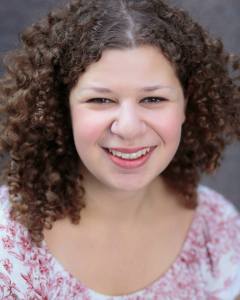
Zoe Kamil discusses her play, Nine Hours.
What was your inspiration for the play?
This play has been a part of my life for just about 2 years (more than that, if we’re counting the period of time where the play existed as a feeling and an idea rather than words), and I’ve been asked this question many times. It never fails to give me pause.
I can count two experiences as being directly responsible for the thematic content of the play: my attendance at a Jewish private school, and my adolescence set against the backdrop of ultra-liberal, ultra-wacky San Francisco. The science-fictiony plot of the play did not, however, come from any sort of personal experience. I knew that I wanted to create a world for these very different characters that could have the potential to trap them or set them free, and a post-apocalyptic wasteland happened to fit that description perfectly.
What do you want the audience to come away with?
With any luck, a sense of hope. In too many ways to list here, I think our world is becoming the sort of environment that my characters find themselves in. Obviously, we are not headed toward any sort of storm-like apocalypse in the foreseeable future, but the stakes are so high at this point in history. Hopefully, when and if we as humans are forced to make that ultimate, base choice, “fight or flight,” we will be able to behave like Faye and Michal, and find some way to reconcile with one another rather than disperse and compartmentalize as a society and a species. I think that, with the proper amount of pressure and intention, any two people or groups of people have the potential to come together.
What was the most challenging part of writing this play?
Writing fantasy is difficult. It takes a very particular combination of creativity and logical thinking to make a story like this one ring true, and establish the rules of an imaginary world with the utmost specificity. It took me a while to find my footing there.
What playwrights have inspired you?
Among countless others: Annie Baker, Edward Albee, Arthur Miller, Anton Chekhov, Gina Gionfriddo, Katori Hall, Stephen Karam, Chris Durang, Wendy Wasserstein, Henrik Ibsen, Tony Kushner, Sam Shepard, Caryl Churchill, Sarah Ruhl, Paula Vogel.
Why did you start writing plays?
Ostensibly, I started writing plays because I took a class in my sophomore year of high school with a brilliant teacher who went out of her way to mentor and guide me, but probably also because I like to talk, I like to listen, and I like words. I like the idea of what gets said out loud and how it relates to what doesn’t. And I’ve loved the performance and theatre of all kinds from a very young age.
What projects are you working on now?
Two full length plays one that I’ve been working on for about a year and a half now, which is partly a courtroom drama, partly a religious fantasy, and partly an episodic play that travels through time non-chronologically to explore the events surrounding rape in a public high school, and rape culture in general. Stylistically, I like to think of it as “12 Angry Men” meets “Angels in America” meets “Mean Girls.” Another play that is very research-heavy, and not even a full first draft yet, is about a woman with mental illness in the 1960s, among other things.
What kind of theatre excites you?
Different aesthetics speak to me at different times. Recently, I’ve been fascinated with visually epic or stunning theatre. Stories that feel like they were meant to exist on stage – that they could only exist on stage – because they’re so inherently theatrical and present.
You are the associate director of a theatre company, Semicolon Theatre Company, run entirely for and by those under 21. What is it like being both a young theatre artist and theatre leader?
“Theatre leader” sounds so impressive! Really, we’re just doing the best we can, working things out as we go along. I run Semicolon alongside my dearest friend Miranda Cornell, who is an inspirational theatre artist herself. The company was born from a shared feeling of intense frustration with the state of theatre for young people.
Why are there so few opportunities for youth to try their hands at more than just the performance aspect of theatre?
Why is the content of plays targeted towards youth often so shallow and watered-down?
We produced two plays off-off-Broadway last year. Watching them come together proved to Miranda and me what we already knew when we founded the company; that tweens and teens experience the world with a distinct perceptiveness and that we have strong, powerful points of view. That being said, as a young artist myself, the mission of Semicolon is incredibly vital and personal to me.
What advice do you have for playwrights starting out?
This is an interesting question, in that I myself feel as though I’m a playwright just starting out. To anyone who is sitting down to write his or her very first playthrough, I will say this: just do it. Start writing words. Write from emotion, write a strong voice that compels you, and worry about plot and structure later.
